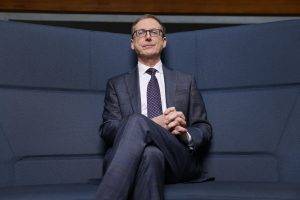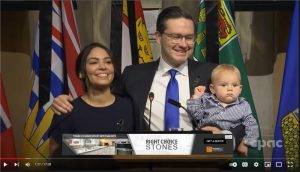Bank of Canada’s Governor Tiff Macklem would like you to know that he doesn’t like inflation – The Globe and Mail

Bank of Canada Governor Tiff Macklem in Ottawa January 26, 2022. Photograph by Blair Gable - Bank of Canada Governor Tiff Macklem in Ottawa January 26, 2022. Photograph by Blair Gable
Bank of Canada’s Governor Tiff Macklem would like you to know that he doesn’t like inflation – The Globe and Mail
Bank of Canada Governor Tiff Macklem in Ottawa on Jan. 26.Blair Gable/The Globe and Mail
Tiff Macklem would like you to know he is going to raise interest rates.
The Governor of the Bank of Canada spent the best part of two years promising to keep interest rates as low as they could go, even in the face of surging inflation. This week, he blinked, declaring an end to the emergency phase of monetary policy, and putting Canadians on notice that borrowing costs are going up, and soon.
“I’m not comfortable with where inflation is, but I don’t regret the actions we took,” Mr. Macklem told The Globe and Mail in an interview on Wednesday. He had just finished announcing a crucial rate decision, and was chatting over a video call from the bank’s Ottawa headquarters, which is still largely empty thanks to the Omicron variant.
Mr. Macklem and his team decided not to raise the bank’s key interest rate, which has been at 0.25 per cent since early in the COVID-19 pandemic.
Bank of Canada holds off hiking interest rates, sets stage for March increase
Don’t misread the Bank of Canada’s decision as inaction. Interest rates will rise, and quickly
But they took the important step of ending the last of their emergency response measures: forward guidance, which is essentially a promise not to raise interest rates. That sent an explicit message that the cost of borrowing is going up, and puts the bank just one step away from its first rate hike since 2018.
With the pace of inflation hitting a three-decade high of 4.8 per cent in December, and the economy showing clear signs it is operating at full potential, the bank’s pandemic-era monetary policy has become untenable.
For almost two years, the bank kept the economy on life support. That meant pumping huge amounts of money into the financial system, buying hundreds of billions of dollars of government bonds, and keeping cheap credit flowing to households and businesses.
It also meant standing pat on interest rates as the price for everything from food to housing shot up, eroding the purchasing power of Canadians’ wages.
Mr. Macklem stands by the bank’s decisions. “We were faced with the biggest, the sharpest recession we have ever seen in our lifetimes, and we took extraordinary actions. And they have worked. The economy has come back impressively,” he said.
But he’s under no illusions about the job ahead. The bank raised its forecast for inflation on Wednesday. It now expects annual consumer price index growth to average 4.2 per cent this year, up from its 3.4 per cent projection in October, and far above its 2 per cent inflation target.
“Interest rates very clearly have to go up to dampen spending and bring demand in line with supply,” Mr. Macklem told The Globe. It doesn’t get much more explicit than that from a central banker.
The response to Wednesday’s rate decision was mixed. Some private sector economists said the bank was being prudent in light of continuing Omicron lockdowns. Their more hawkish counterparts said the bank’s governing council missed a crucial opportunity to push back against inflation, and further strained the bank’s credibility.
As far as Mr. Macklem is concerned, the choice to signal now, hike later is in line with the bank’s actions throughout the pandemic.
“I think that deliberate approach where we are clear with Canadians on how we see things and what we think needs to happen has been very helpful through this crisis,” Mr. Macklem said.
Governor is clear and opaque.
So what happens next? On this, the Governor is clear and opaque.
Rates are going on up, you can bet on that. But how soon will rate increases start, how fast will the Bank of Canada move and how high will the policy rate go? Mr. Macklem kept his cards close to his chest. Although if you squint, you can see hints of how he is thinking.
The further down the path you get, the more finely balanced those decisions will become, the more data-dependent they will become,”
“We’re starting at ultralow. And it’s clear we need to move up. At first, I think the implications are fairly obvious for interest rates. The further down the path you get, the more finely balanced those decisions will become, the more data-dependent they will become,” Mr. Macklem said, seeming to suggest the first few hikes could happen soon.

Mr. Macklem and his team opted not to raise the bank’s key interest rate this week, which has been at 0.25 per cent since the early days of the pandemic.Blair Gable/The Globe and Mail
Markets are pricing in five quarter-percentage-point rate hikes in 2022, and many private sector economists have pencilled in at least three rate hikes this year. The assumption is that the bank must get its overnight rate back up to around 2 per cent to be in a position where it is neither stimulating nor holding back the economy. The policy rate was at 1.75 per cent before the pandemic.
A rising path of rates, Mr. Macklem said, “doesn’t rule out that you do a few moves, and then you might pause and sort of assess the situation, and then perhaps restart. There are a variety of possible paths.”
This may all sound like typical central-banker-speak: conservative and measured, with plenty of caveats. But the fact that Mr. Macklem is actively talking about raising rates amounts to a major shift. He has spent his entire tenure promising to keep borrowing costs at rock bottom. As recently as December, he said he did not expect to raise rates until the middle quarters of 2022.
Andrew Kelvin, chief Canada strategist with Toronto-Dominion Bank, expects the Bank of Canada to start raising rates at its next policy meeting on March 2.
“I have a lot of time for the argument that the bank wanted to put distance between rate hikes and the Omicron lockdown, and I don’t think it’s likely that there will be much, if any, damage done to their credibility by waiting the five weeks,” Mr. Kelvin said in an interview.
“But waiting until April, given where inflation is, it does start to run the risk of inflation expectations becoming unanchored, which would make the bank’s task going forward far more difficult.”
The Bank of Canada is not alone in leaning into a rate-hike cycle after a long period of ultraloose monetary policy. Advanced economy central banks around the world spent much of the past year arguing that high inflation would be a short-lived phenomenon that would peter out as global supply chains adjusted to disruptions caused by the pandemic.
Throughout the fall, however, it became increasingly apparent that inflation would move higher and stay around longer than policy makers expected.
This realization has spurred a major push by central banks to recalibrate market and household expectations about the direction of monetary policy. The most significant move came from the U.S. Federal Reserve, which hinted Wednesday it could start raising rates as early as March. That’s a major revision. In September, half the members of the Federal Open Market Committee weren’t expecting any rate hikes in 2022.
This shift by policy makers has sent tremors through global markets. Since the start of the year, bonds have sold off in expectation of rate hikes, and equity markets have fallen sharply, with the biggest casualties being growth stocks that benefit the most from ultralow borrowing rates.
Critics say central bankers are still moving too slowly, given the blistering pace of inflation and growing signs that business and consumer expectations for future inflation are creeping higher. Derek Holt, head of capital market economics at Bank of Nova Scotia, said the Bank of Canada made a significant error by not raising rates heading into the spring real estate season.
“By inflaming the housing market side of the picture, the combined effects of hot inflation and hot asset prices I worry could be destabilizing to the economy and the financial system over time,” Mr. Holt said in an interview.
Worries about inflation are becoming intensely political. In recent months, the Conservative Party, led by its finance critic, Pierre Poilievre, has made inflation a top issue, blaming the federal government and the Bank of Canada for rising consumer prices.
The political debate reached a fever pitch in December, when the federal government renewed the bank’s five-year mandate, instructing it to continue to target inflation, but also put additional emphasis on employment. Mandate renewals provide the clearest opportunity for politicians to weigh in on monetary policy, which the central bank conducts on a day-to-day basis independent from government interference.
The House of Commons Finance Committee is now conducting hearings into the causes of inflation, and has invited Mr. Macklem to appear.
Does all this attention from politicians make Mr. Macklem’s job harder? To this, he gives the vanilla response of a seasoned bureaucrat: “It’s not surprising that politicians are talking about inflation. It’s on the minds of their constituents,” he said.

The Bank of Canada expects housing market activity to remain elevated in 2022, but the pace of price growth should slow as interest rates rise and pandemic-related demand for more living space dissipates.Jeff McIntosh/The Canadian Press
Mr. Macklem does say the central bank will pay close attention to the housing market and household debt as it recalibrates monetary policy. Indeed, one reason the bank is emphasizing that rate hikes are imminent is to give people fair warning, he said.
“If you’re Canadian and you have a variable rate mortgage, we’re effectively telling you that you can expect that variable rate mortgage is going to go up,” he said.
The majority of Canadian homeowners are on fixed-rate mortgages, and won’t feel the pinch of higher rates until they renew. But new home buyers gorged on variable rate mortgages during the pandemic, meaning a large share of them could be exposed to rising debt service costs in the coming months.
The high level of household debt is a persistent concern for the bank. In a December speech about the stability of the financial system, deputy governor Paul Beaudry warned that the quality of new mortgages had deteriorated in recent quarters, and that the proportion of highly indebted households is approaching a record high.
“It’s also important to remember that the federal mortgage stress test, while very helpful for lenders to gauge whether a household could handle higher mortgage rates, doesn’t provide a certificate of perfect financial health,” Mr. Beaudry said.
“Whether a household could withstand higher rates without slashing other spending depends on how well it manages its finances overall before rates rise,” he said.
Mr. Macklem noted that households that stretched to take on debt during the pandemic are partly balanced out by households that accumulated excess savings. In December, the bank estimated the average Canadian had saved an additional $8,300 since the start of the pandemic.
As for the housing market itself, the Bank of Canada expects activity to remain elevated in 2022. But the pace of price growth should slow, compared with 2021, as interest rates rise and pandemic-related demand for more living space dissipates.
“We think it would be healthy to see some gradual slowing in the housing market. We can’t sustain the kind of strength in housing we’ve seen. I think that would be a good thing, not a bad thing,” Mr. Macklem said.
On inflation, the Bank of Canada has a long fight ahead. It now expects inflation to remain close to 5 per cent through the first half of the year, then slowly decline toward 3 per cent by the end of 2022. Inflation is expected to average 2.3 per cent in 2023, still above the bank’s target of 2 per cent, but back within its control range of 1 per cent to 3 per cent.
But the bank has been consistently wrong in its inflation projections over the past year, underestimating inflation’s strength and persistence, and revising projections higher each quarter.
Mr. Macklem said inflation should move lower once global supply chain problems caused by the pandemic – such as semiconductor shortages, factory shutdowns in China and container shipping backlogs – begin to normalize, and consumer demand moves away from durable goods and back toward services, such as travel and restaurants.
Rising interest rates will also begin to cut into inflation, although this will take some time. Changes to the bank’s policy rate typically take 18 to 24 months to have a full impact on aggregate demand – although they can impact other variables sooner, such as the exchange rate and inflation expectations.
As the bank enters the next phase of monetary policy, Mr. Macklem said he remains confident in his toolkit. Now he has to convince Canadians.
“I’ve learned this now a few times in my career,” he said. “I remember this after 9/11; I remember after the global financial crisis. We lowered interest rates and people said, ‘Well, this is a terrorist attack, monetary policy is not going to work.
This is a financial crisis, monetary policy is not going to work. This is a pandemic, monetary policy is not going to work.’ Well, it works.”
“It worked on the downside,” he said. “It’s going to work on the upside.”
This web page was saved on Saturday, Jan 29 2022. |
Mr. Macklem and his team decided not to raise the bank’s key interest rate, which has been at 0.25 per cent since early in the COVID-19 pandemic.
But they took the important step of ending the last of their emergency response measures: forward guidance, which is essentially a promise not to raise interest rates. That sent an explicit message that the cost of borrowing is going up, and puts the bank just one step away from its first rate hike since 2018.

But they took the important step of ending the last of their emergency response measures: forward guidance, which is essentially a promise not to raise interest rates. That sent an explicit message that the cost of borrowing is going up, and puts the bank just one step away from its first rate hike since 2018.
Canada Mortgage Calculator ratehub.ca
Home » Bank of Canada’s Governor Tiff Macklem would like you to know that he doesn’t like inflation – The Globe and Mail
source: tradingeconomics.com
Bookmarkable Matters for Canadians
What can account for this phenomenon?
Click HereOn What Matters
Matters to the Village of Vancouver

Bank of Canada’s Governor Tiff Macklem would like you to know that he doesn’t like inflation – The Globe and Mail
What can account for this phenomenon? Click Here Table of Contents Bank of Canada’s Governor Tiff Macklem would like you

Daphne Bramham: Vancouver mayor taps developers to fund re-election | Vancouver Sun
has the charisma of not being charismatic has the charisma of not being charismatic What can account for this phenomenon?

Daphne Bramham: Vancouver mayor taps developers to fund re-election | Vancouver Sun 達芙妮·布拉姆漢姆:溫哥華市長利用開發商為連任提供資金|溫哥華太陽報
達芙妮·布拉姆漢姆:溫哥華市長利用開發商為連任提供資金|溫哥華太陽報
45th Canadian Federal Election—CFE45-Year 2025
Psephology and the 45th Canadian Federal Election 2025: A Fun Guide | Selfology Into the world of psephology and discover

Follow the Money & Power Holder
The Canadian Housing Guide (CHG)
on
Developer Donations and Campaign Finance Reform in the City of Ottawa

Rex Murphy: Pierre Poilievre draws rock star crowds of people tired of Trudeau | National Post
Pierre Poilievre has the charisma of not being charismatic What can account for this phenomenon? Pierre Poilievre meets hundreds of


